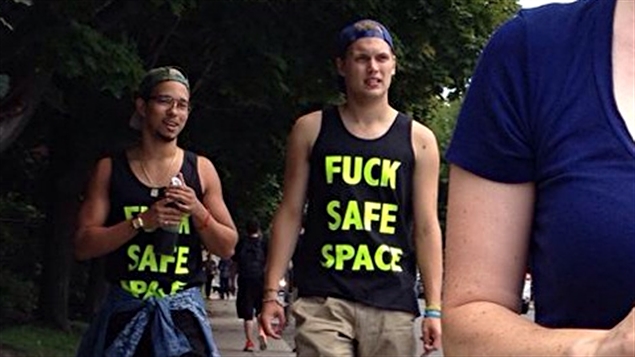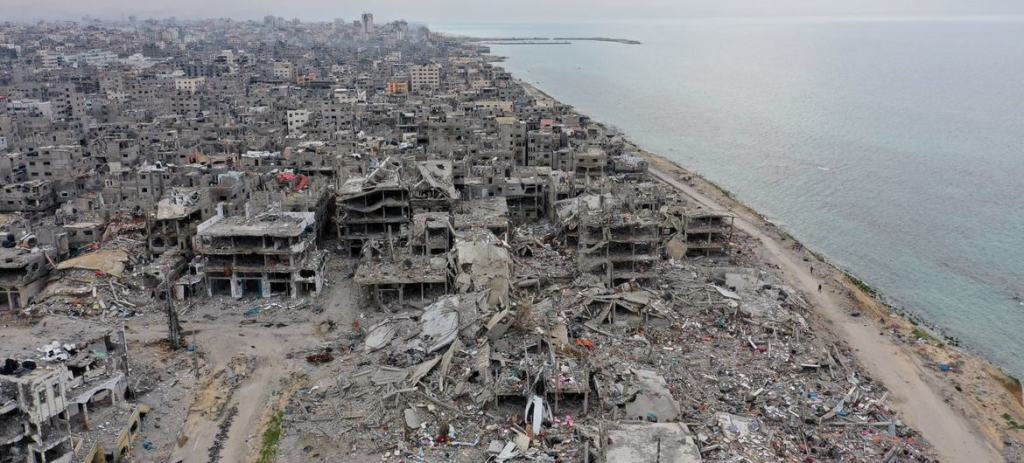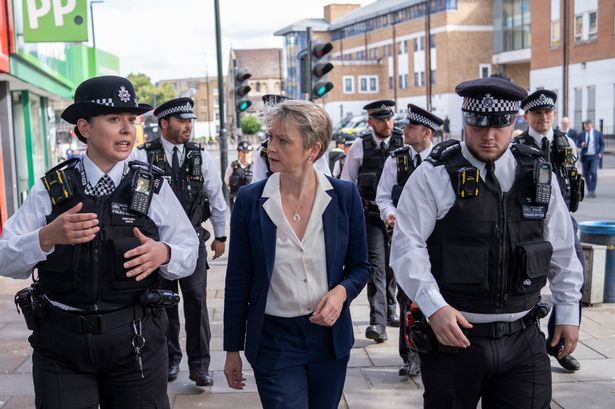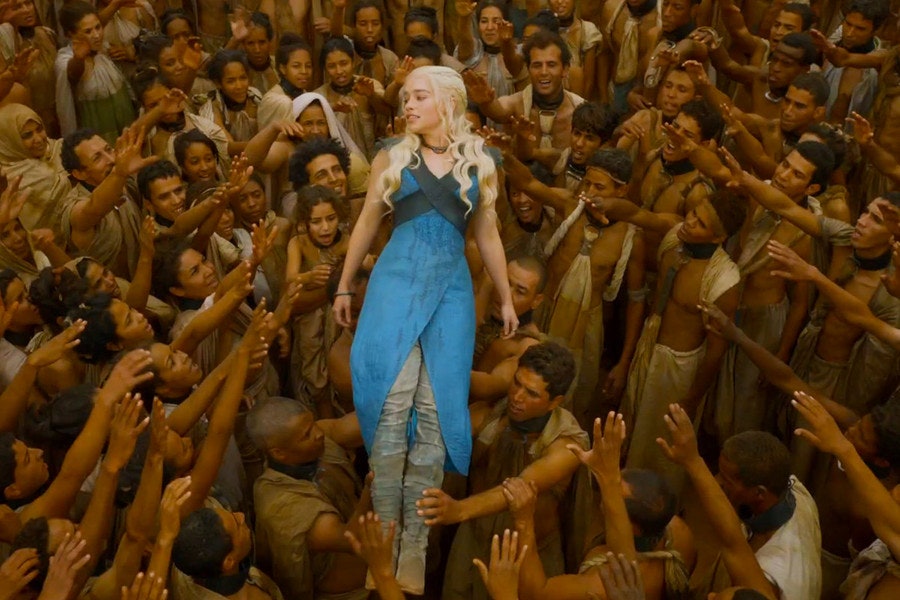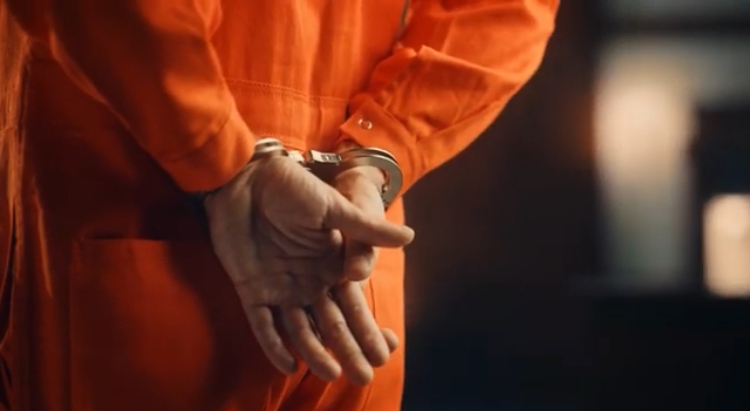by Chimene Suleyman Follow @chimenesuleyman
The commotion around Bahar Mustafa’s request that white men stay away from a Goldsmiths union meeting (that she had arranged) boiled down to two discrepancies in the understanding of it: Can white people experience racism? Can men be subject to sexism? In short, when you have the most power in society, can you be subdued by those who don’t? And the most readily available answer is here: if they could, Bahar Mustafa would not currently be faced with a court order for a widely used hashtag.
Back in May when Maya Goodfellow wrote about the petition against the then diversity officer for Goldsmiths University, few could have expected that six months later Bahar Mustafa would be facing a court summons from the Met Police. Mustafa’s original plea for a space that only people of colour and women could use was a powerful and welcomed request from many who often find themselves talked over by white men. It’s a real problem and easy to spot once you remove emotion from the criticism. Goldsmiths itself is situated in a predominately working-class black neighbourhood and yet its large body of white students falls far short in reflecting that. As such, diversity officers, like Mustafa, are put in place to find ways to improve the surroundings, not for the default white male student but for literally everyone else.
It’s not an outrageous request: to have one place to speak freely on experiences of discrimination without having to educate or be challenged on it. Think of it as no different from faith schools or women’s only clinics. Important points on the maltreatment of marginalised groups were being made, but instead the space was hijacked by those who needed it the least and it was Mustafa who was made a spectacle of. The subsequent racist and sexist abuse she experienced was itself an example of the kind of violence minority communities encounter when they seek to define their own spaces without white or male authority. Toys were thrown out of the pram and in all of the chaos it was easier to make one woman of colour a scapegoat than interrogate the structures she was challenging.
Across social media women have uttered (for some time) the words ‘kill all men’. As churlish as it may be, it has been a kind of collective exasperation tacked on to the end of a remark on that day’s street harassment, or memory about violent abuse. It is fantasy. A collective chant that is utterly figurative and a riposte from women who are more than a little exhausted by their fear of men.
It is the language of retribution, and it is important to remember that reprisals are a response to a horrific situation that already exists and not the cause of them. Mustafa’s tweet (to ‘killallwhitemen’) and call for a meeting space that excludes white men, are born of the same thing: a reaction to the limitations she has felt as a brown woman.
To take it literally is conveniently basic. To judge it along the terms that ‘if a white man said these things…’ ignores the availability of power, of which she has none. You may well look at the hashtag and find it venomous, but spitefulness is the forefather of internet culture and meanness is certainly not a crime. Hell, are the people who have consequently sent Mustafa death and rape threats going to be treated as criminals? I can tell you now they won’t be. Just like the thousands of men who have threatened women directly and remained free of consequence. Because that really is rather the point; Mustafa wrote an open hashtag that was not directed to any one individual (although there is discrepancy about a possible private conversation that took place), yet is being held accountable in a way that the man who sent me a picture of two women hanging from a tree was not.
Is it a literal cry for male genocide? No. Of course it isn’t. But it has worked as a kind of tag-line, hurled into the ether, which makes the statement that the world would be better for women if men weren’t in it. It is a huge statement and one that is deserving of deep reflection. It is easy to punish Mustafa on a technicality, or because you don’t think she dealt with her anger appropriately. But it takes a healthier society to accept accountability for why a brown woman has so much anger towards white men. Do not bury your responsibility behind how uncomfortable her fury makes you. After all, aren’t outrageous declarations the fodder of tabloid media? Of Katie Hopkins and John Terry and Charlie Hebdo? And yet we are all JeSuisHateSpeech when we believe we are protecting ourselves from immigrants and refugees who are proven as far less of a daily threat than men are to women.
Is there really any man who has looked at those three words and sincerely feared for his life? Any man who has planned a longer, more arduous route from the pub to his home simply because it is better lit, to avoid meeting with women on quiet roads? Are there men who have seen that hashtag and wondered which school or cinema will be gunned down next because a young woman wasn’t as sexually active as her peers, or found it hard to make friends? Frankly, ‘kill all men’ relies on the knowledge that we couldn’t, even if we wanted to. What absolute arrogance to feign morality over three words that have never even come close to reflecting gendered violence in society. If it is gendered genocide we are so worried about, we ought to do damn more about the two women a week who are killed in the UK alone simply for being women.
Of course if it were Bahar Mustafa’s position as a woman alone that threatened us, the metropolitan police would be at the doors of thousands of women after a quick online search of the hashtag. But it is Mustafa’s brownness and name that we are fearful of. It is the interjection of ‘white’ in her tweet that is scary. Brown people are not afforded the same frivolous, thoughtless outbursts without being singled out for their potential violence. She is no longer a part of a collective women’s hashtag, but instead part of a racial war between white and brown. It is nothing short of racial profiling to take Mustafa’s tweets any more seriously than her hundreds of white counterparts.
So how did we get from safe spaces to a court summons? Mustafa wanted to create a safe space, free of white men, on the basis that her experience is that white men must always have the final say. On the basis that she, and many like her, find white men dangerous. It is not Mustafa who has made the threat. The threat is coming from those warning her — warning all of us — that you will be punished to the highest order if you try to exclude those with the most power from anything at all.
Chimene Suleyman is a writer from London of Turkish / Middle Eastern heritage. She writes opinion pieces, contributing to The Independent as well as regularly featured writing for online blog and events organiser Poejazzi. She has represented the UK at the International Biennale, Rome 2011 with spoken word. Her poetry collection “Outside Looking On” published by Influx Press is out now. She collects photos of Canary Wharf. Find her on Twitter: @chimenesuleyman
More by Chimene Suleyman
- Why was Aylan Kurdi’s life worth kindness from the press in death, but not in life?
- The Sinister Abuse of Refugees at Yarl’s Wood
- It’s Time To Talk About Why Our Young People Turn Against Their Country
- ‘Defining’ Terror, and Why ISIS Suits the West
- Cultural Appropriation: The Fashionable Face of Racism (mediadiversified.org)
If you enjoyed reading this article, help us continue to provide more! Media Diversified is 100% reader-funded – you can subscribe for as little as £5 per month here.
